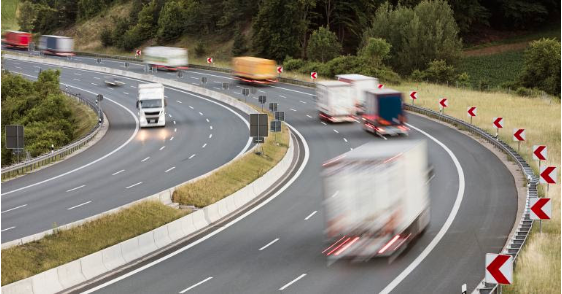The Road Safety Authority (RSA) today hosted its Annual International Road Safety Conference in Dublin Castle. This year’s theme was on ‘Driver Distraction’ and highlighted the urgent need for drivers to cut-out distractions while behind the wheel. It featured national and international experts on mobile phone usage and its impact on road safety.
Delegates heard from Dr. Kiran Sarma, Forensic Psychologist Associate Professor, School of Psychology at University of Galway who outlined attitudes and addictive behaviour towards smart phone use which indicated that the ‘fear of missing out (FOMO)’ on messages, calls and notifications while driving is a significant motivation behind this dangerous behaviour.
- Planned behaviour: Drivers deliberately use t
- heir phones, and this derives from high self-efficacy (e.g., “I believe I can handle the car safely while using the phone”), low risk perceptions (e.g., “I won’t get caught”), and belief that others use their phones all the time (i.e., normative influences).
- Automatic behaviour: Linked to unconscious processes derived from habit, the fear of missing out and smart phone addiction.
Dr Sarma’s insights stemmed from six focus groups conducted with 18-24 year old drivers based in Galway, Sligo, Cork and Dublin, and completed interviews with six international road safety experts in the field to explore young driver mobile phone use in detail. This work was commissioned by the RSA and launched at the conference today.
A 2023 observational study commissioned by the RSA found that 9% of drivers observed on Irish roads were using a mobile device while driving. This figure was at 6% when the same study was conducted in 2022.
Professor Michael Regan from the University of New South Wales discussed the latest developments in Australia, including new legislation on driver distraction and the roll-out of new mobile phone detection cameras.
Professor John Lee from the University of Wisconsin-Madison highlighted that, while technology has the potential to improve road safety, its success can depend on how people choose to interact with it.
An emerging theme from the conference, including from speakers such as Kees Verweij from the Netherlands Police Force, was the key role of enforcement in deterring distracted driving. Presentations from Professor Oscar Oviedo-Trespalacios from TU Delft, and Dr Ilse Harms from Euro NCAP also emphasised the range of distractions drivers experience beyond mobile phone use, and the importance of targeting these, including in relation to strategic vehicle design.
Minister of State at the Department of Transport, James Lawless said: “It is clear from listening to the expert speakers today that there is no level of distraction, multi-tasking or mobile phone use while driving which should be considered safe or societally acceptable. None of us, regardless of our age or years of driving experience, have the right to pick up the phone while behind the wheel of a vehicle driving at any speed and on any road.
We need to take an approach to tackling driver distraction that includes education, engineering and enforcement. These need to be underpinned by personal responsibility by all drivers. It is critical that we work together with key agencies such as An Garda Síochána to reduce distracted driving on our roads, and keep road users safe.”
Liz O’Donnell, Chairperson of the Road Safety Authority said: “The insights shared today by the speakers really drive home the importance of reducing distractions when driving. It’s unacceptable to put lives at risk for something as unimportant as reading a text or email.
We have a shared responsibility to stop and call out this dangerous behaviour which has become far too common on our roads We must as a society stigmatize mobile phone usage while driving and make it utterly unacceptable, rather than normalising it.”
Sam Waide, Chief Executive of the Road Safety Authority said: “Behind every road de ath is a life lost, and devastated families and communities. Driver distraction is preventable, and I am calling on all drivers to put their phones away when behind the wheel. If you are being distracted by passengers, ask them to

stop. If you really need to check phone notifications, pull in and address it. Change your behaviour each time until it becomes a good habit. The risk of penalty points and a fine, serious injury or death is simply not worth it. At the conference today, An Garda Síochána confirmed additional enforcement measures to detect and penalise distracted driving, including the new unmarked Garda HGV which targets and detects drivers using a mobile phone or other electronic devices while driving, which is welcomed by the RSA.”
The experts emphasised that tackling mobile phone distraction is complex, and a systemic approach, including police enforcement, phone and app companies, car manufacturers and insurers is required.
Using a phone while driving slows reaction times and makes it more difficult to stay in the correct lane, and a safe distance from other cars. International evidence indicates that drivers using a mobile phone are four times more likely to be involved in a road traffic collision.
The conference presentation slides and recordings will be available on www.rsa.ie.


